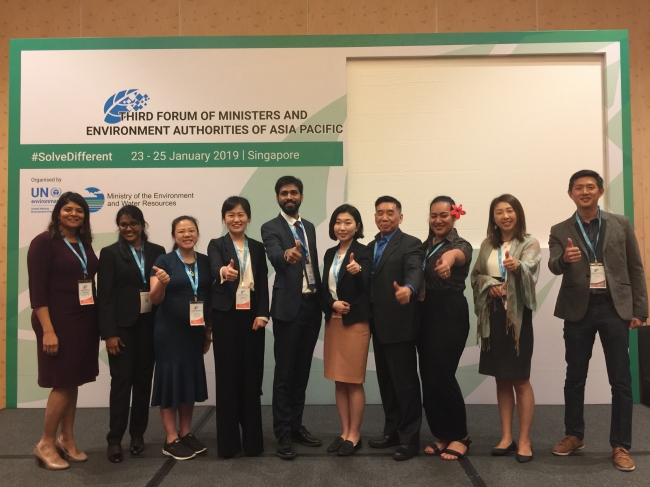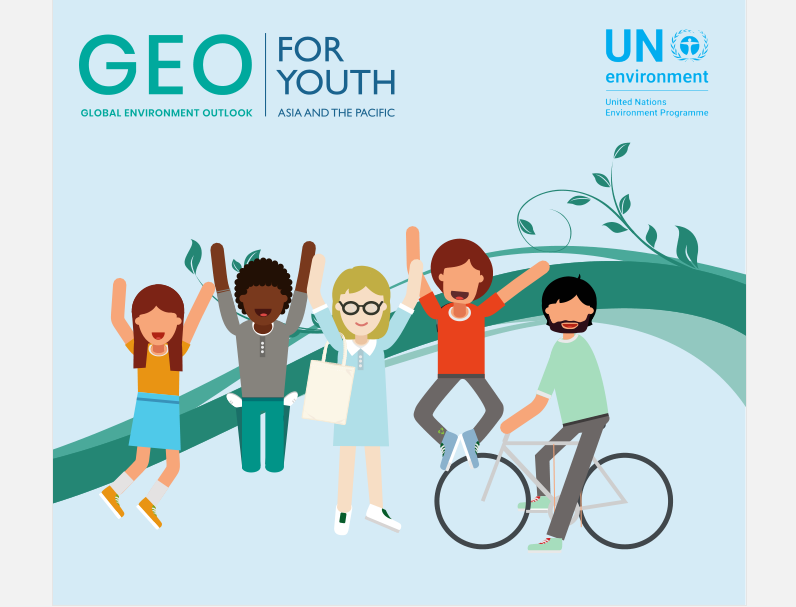The first regional youth version of the flagship report of the United Nations Environment Programme (UNEP), Global Environment Outlook (GEO), was released during the Third Asia-Pacific Environment Ministers Forum in January 2019. Ms. Dechen, Director of the Asia-Pacific Regional Office of UNEP, and the lead author of the report Wang Ying, Tongji University Associate professors, representatives of the Ministry of Environment of Singapore and representatives of the authors of the report attended the report conference.

The Asia-Pacific youth report of the Global Environment Outlook released this time is the first regional youth report released by UNEP. Tongji University and UNEP have been preparing for report writing since 2016. There are a total of more than 10 countries in the Asia-Pacific region. More than 30 young scientists from a total of more than 10 countries of Asia-Pacific region participated in the preparation of the report. This report aims to provide a new scientific report for young people from different field. The content includes the status quo and challenges of environmental issues facing the Asia-Pacific region, as well as case sharing of young people's participation in environmental protection affairs. Compared with traditional scientific reports, the youth version of the report uses cartoons, illustrations, animations, and videos to visualize scientific data. The content of the report avoids using too many environmental professional vocabulary, and explains problems and solutions in a language that is more understandable and acceptable to the public.

In order to better interact with readers, the report writing team planned a series of online and offline activities. At the 2019 International Student Conference on Environment and Sustainability(ISCES), more than 300 young people from more than 40 countries will gather in Tongji. They interacted with representatives of UNEP and the report writing team through group discussions, field visits, experience sharing, and brainstorming. At the same time, other exchange activities will also be launched in various cities in the Asia-Pacific region this year, including public lectures and dialogues, environmental animation contests, online social media interactions, and student summer camps.